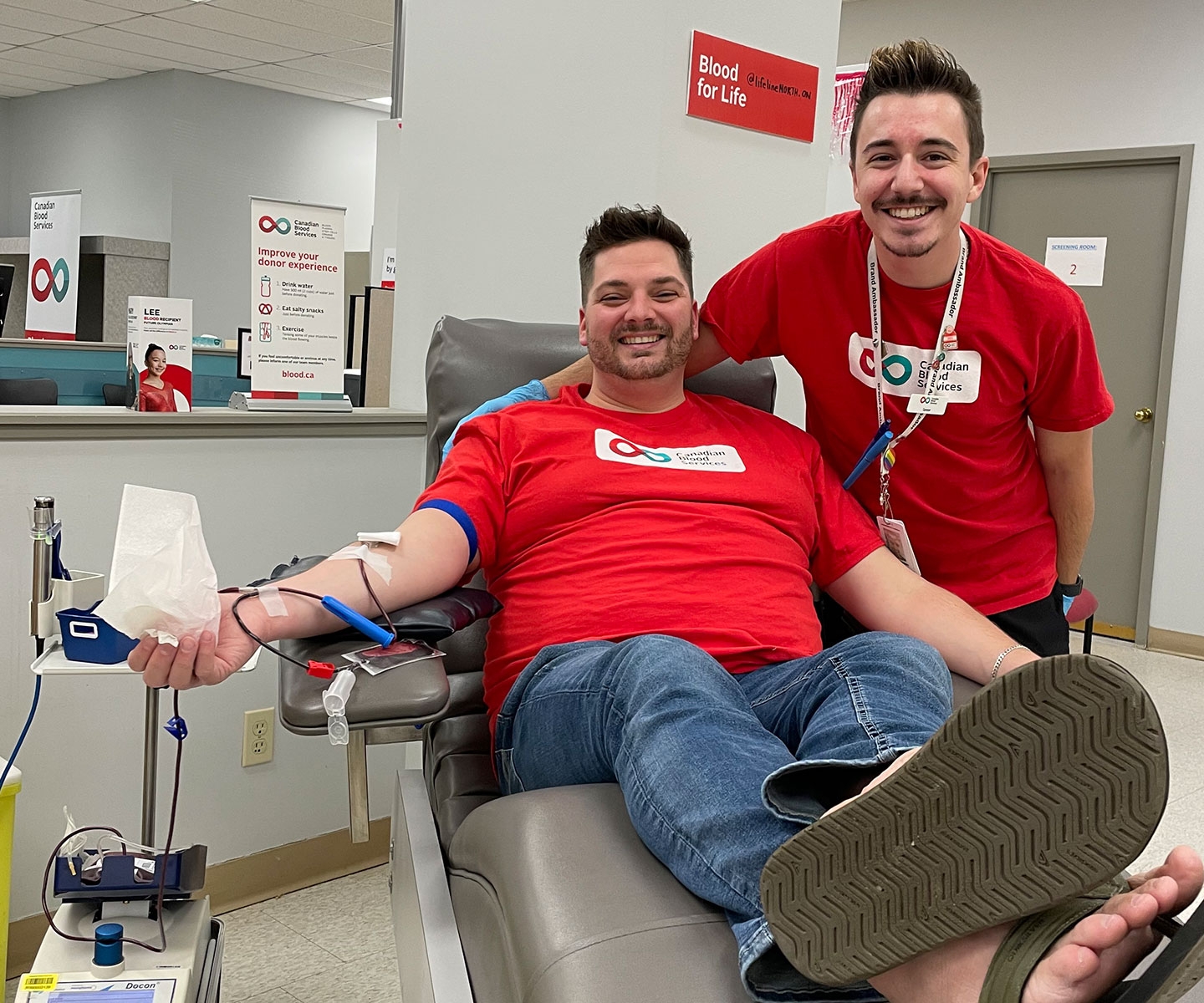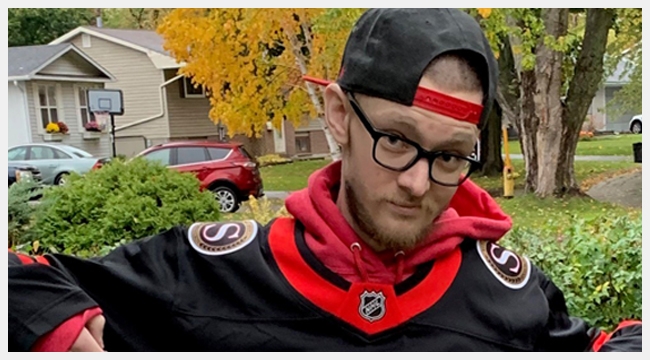So you think you can’t donate? Check to be sure, to help us help patients

The fine details and latest updates about blood and plasma donor eligibility may surprise you
Have you ever been told you can’t donate blood or plasma? If so, it’s important to know that our eligibility criteria are updated regularly to reflect the best available research and information. Even if you thought you could never donate again, updates to the criteria could change that.
Read on for a snapshot of recent eligibility changes and important facts. And if you’ve been deferred in the past, but believe you are eligible now, please call 1 888 2 DONATE (1-888-236-6283) to resume your donor journey. After that, you’ll be able to book future appointments online or with the GiveBlood app.
Some important facts about blood and plasma donor eligibility
1. Restrictions related to time spent in countries affected by ‘mad cow’ disease were lifted in 2022 and 2023

For decades, thousands of people in Canada have been unable to donate blood or plasma because of criteria to prevent the transmission of variant Creutzfeldt Jakob disease (vCJD) ― commonly known as the human form of ‘mad cow’ disease. The criteria has pertained to people who had lived or spent time in certain countries in the 1980s and 90s.
Starting December 4, 2023, these restrictions no longer apply. This means people who have lived or spent time in the UK, the Republic of Ireland and France are eligible to make donations as of that day, provided they meet all other eligibility criteria.
The change followed an earlier update in 2022, which lifted restrictions for people who had lived in many other western European countries as well as Saudi Arabia.
These changes to our blood and plasma donor eligibility criteria were based on decades of surveillance and research from Canada and around the world. That work demonstrated that removing criteria related to potential exposure to contaminated beef products and transfusion in specific countries would not lead to an increase in the transmission of vCJD.
2. Travelled to an area where malaria is endemic? You may still be able to donate.
Every time you donate, we ask about where you may have previously lived or travelled. This is because the places you’ve lived in and travelled to can expose you to different infections that may be passed on to others through blood. You can see our travel page for full details.
But did you know that in 2020, we made important updates affecting donors who have returned from short-term travel? They affect those who have spent time in areas where medications to prevent malaria are recommended.
If your stay in one of those areas was less than six months, you only need to wait three months to donate blood or platelets. And if your stay was less than one day, or if you are a plasma donor, you may be able to donate sooner.

If you can’t donate whole blood or platelets because you recently lived in or returned from a place where medications to prevent malaria are recommended, you may still be able to donate plasma. The eligibility criteria are different because when medications are made from plasma, the malaria parasite is removed.
At our dedicated plasma donor centres, there is no waiting period related to travel to malaria-endemic areas (outside the 21-day waiting period that applies to all donors after international travel outside the continental U.S., Europe and Antarctica).
You can also be eligible to donate plasma after a malaria infection (starting six months after recovery). Unfortunately, people who have had malaria are not eligible to donate whole blood or platelets.
Learn more about malaria and blood donation.
3. Some gay, bisexual and other men who have sex with men are now eligible to donate

In September 2022, screening questions specific to sexually active gay, bisexual and other men who have sex with men were removed from our donor questionnaire. Instead, all who wish to donate are now asked the same questions about sexual history.
Because of this change, more gay, bisexual and other men who have sex with men who could not previously donate became eligible. Learn more about sexual behaviour-based screening.
4. Most prescribed medications are not a barrier to donating
Additionally, even if a particular medication was the cause to stop donating, you may be eligible today because of changes in medication-related criteria.
Check out the “medications” section of our ABCs of eligibility to learn more, and to see a list of commonly prescribed medications that are acceptable when donating blood or plasma.
5. Many cancer survivors can donate blood, plasma and platelets

At one time, people were not eligible to donate after cancer diagnosis and treatment.
Today, however, survivors of most types of cancer can be eligible to donate one year after their treatment is complete and they are cancer free. (An earlier change, in July 2016, had permitted donation after five years). Check out the “cancer” section in our ABCs of eligibility to learn more.
6. There is no upper age limit for donating blood, plasma and platelets

The upper age limit was removed in 2016. Anyone 17 years or older may be eligible to donate. See “age” in our ABCs of eligibility for more details.
7. You may be eligible to donate even if you have had heart trouble
After treatment for heart conditions such as a heart attack, you may be eligible to donate. You can call 1 888 2 DONATE (1-888-236-6283) to discuss your condition.
Ready to donate blood, plasma or platelets? Book now at blood.ca or by using the GiveBlood app. If you have tried donating previously and been found ineligible, please give us a call first at 1 888 2 DONATE (1-888-236-6283). You can also explore all ways to give. Together, we are Canada’s Lifeline.
NOTE: An earlier version of this article was first published in January 2023. All donor eligibility information in this new article is current as of the date of publication. For the very latest information please consult our ABCs of eligibility page or call 1 888 2 DONATE.



